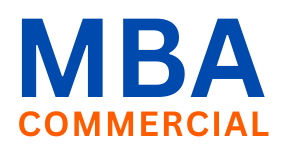Lease Term Glossary
Term of Lease
Term/Length of your commercial lease plays an important part in lease negotiation. The standard lease term is five years; leasing brokers usually used this time frame more than landlord. The lease term is how long your business is obligated to occupy the space. This lease agreement is a binding contract between the tenant and the landlord. However, commercial lease of 36 months (3 years) minimum and up to 10 years are commonly used today. When considering the term of your proposed lease, you should think about your business flexibility and the rental rate.
Expiring Lease
Most likely when your space lease has expired, your landlord may have already committed your space to another company. You may be exposed to penalties if you do not move out by the expiration date. In this case, if your lease does expire before you can relocate, you must first contact the landlord or its agent to negotiate an extension. The legal process for an eviction to be completed is around 2 to 3 months.
Gross Leases
The Landlord use your rent to covers for all expenses related to the building and space that your business is occupying. Verifying insurance coverage and additional coverage your business will need is recommended. Your insurance carrier should advise you of what is cover and what is not, that could affect your business.
Modified Gross Leases
In this lease, the Landlord pays only some of the expenses while leaving some of them to the tenant. The Landlord may also choose to cover the first, or base year taxes for the life of the lease, with any incremental increases being borne by the tenant for subsequent periods.
Triple-Net Leases
In this lease, the tenant pays the taxes, maintenance, and insurance on the space occupied. Circumstance varies for each situation.
Month-to-Month Leases
A longer term is more secure than a month-to-month lease because the tenant can run the risk of having the Landlord renting the space out to another tenant for a higher price, or for a longer term. The tenant could also be subject to sudden rent increases.
What is recommended is that the tenant should put a clause in their lease agreement that requires the landlord to give the tenant three months’ written notice of termination.
Holdover Period
A holdover period is when the tenant come to the end of their lease term and do not have a renewal, extension, or a new agreement. During the holdover period, some lease agreement contain a clause that states that the tenant’s rent will substantially increase. The standard increase is between 50% to 100%. The best way is to negotiate an increase of 0 percent, but 10 percent is usually acceptable.
Sublease
With the approval of the Landlord, most commercial leases give the tenant the right to sublease the space. Subleasing is needed when the tenant needs to relocate prior to their lease expiration. In most cases, the landlord may take all the profits or the tenant may get a 50/50 split after the cost of subleasing.
Restoring Space
The space that the tenant leaves should be in the same condition when they first received the space. Anything that is nailed, screwed, or glued down should stay where it is and these are considerd the landlord’s property to avoid any substantial cost. The tenant should leave everything the way it used to be.
Rent Escalation
The rate of tenant rent going up each year is quoted as a yearly percentage increase called escalators. Rent escalation are influenced by market conditions and it is negotiable.
Renewal
In the original lease negotiations, the tenant should include a renewal option or extension period. Later on if the tenant wants to sell their business before their lease ends, the renewal option and terms is very critical for whoever is buying the tenant’s business.
Option to renew the tenant lease for a period equal to the original term is usually offered by the landlord.
To get the greatest flexibility on your renewal period, you should add a clause that read, “The renewal period will be for a term up to _______ years (tenant choose desired year).”
Topic:
- Terms of Lease
- Expiring Lease
- Gross Leases
- Modified Gross Leases
- Triple-net Leases
- Month-to month leases
- Holdover Period
- Sublease
- Restoring space
- Rent Escalation
- Renewal
